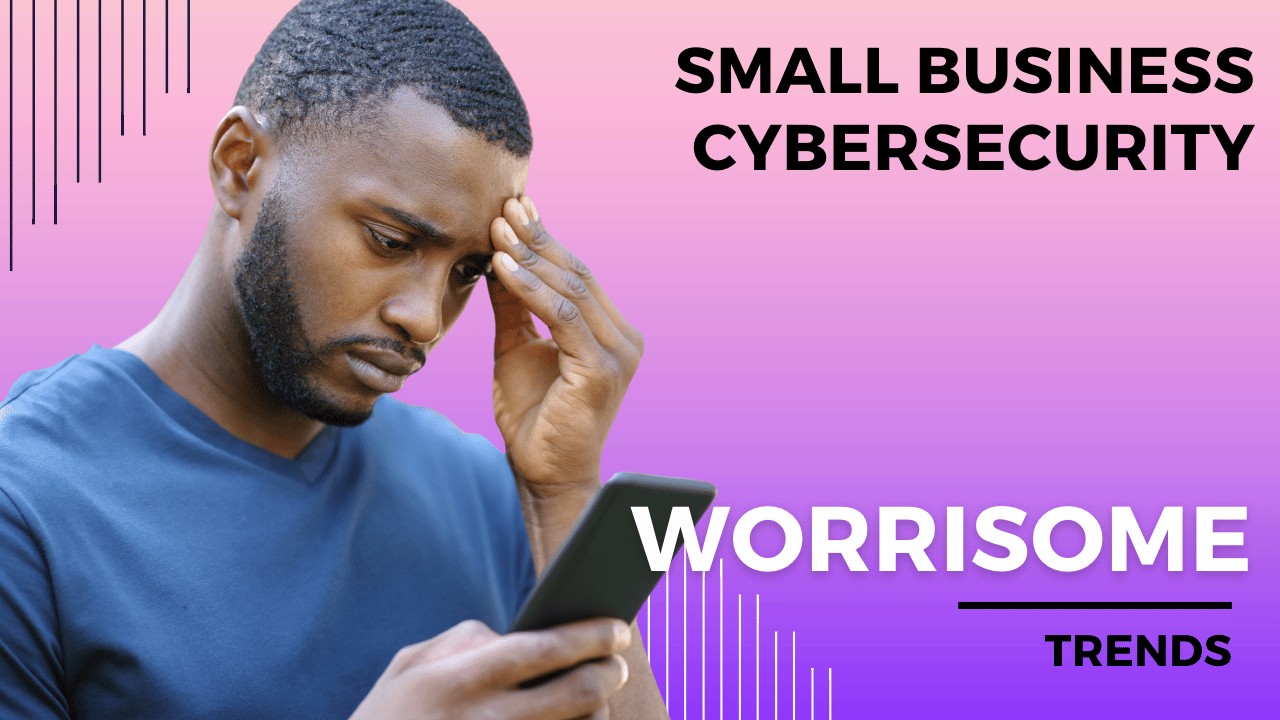Hackers Don’t Discriminate: Worrisome Trends For Small Businesses
Key points:
- More than 40% of cyberattacks target small companies.
- Since larger companies invest more money in cybersecurity, hackers turn to smaller businesses.
- Small businesses are in denial about their vulnerability.
- Contrary to a common misconception, you don’t need a large budget to boost cybersecurity.
More and more organizations are learning about cybersecurity the hard way. In 2022, businesses around the world faced a cyberattack every 11 seconds.
While large enterprises are appealing targets for cybercriminals, SMBs aren’t too far behind. Today, attacks on small businesses are taking center stage and hitting them hard. In 2022, the average cost of data breaches was $4.35M.
According to Accenture’s cybercrime study, 43% of cyberattacks are launched at small businesses, but only about 14% of these companies are prepared.
Here is a close look at why cybercriminals focus on smaller businesses and how to prevent cybercrime from impacting your organization

Why Do Cybercriminals Target Small Companies?
Attacking smaller companies instead of targeting enterprises with higher revenues seems counterintuitive. However, cybercriminals are spending more and more time and resources focusing on SMBs for several important reasons.
State of Denial
One of the key reasons why hackers are attacking small companies is denial. Small business owners don’t believe they have anything valuable to offer a hacker. After all, small companies don’t have as much money to pay ransom for their data as industry giants do.
According to a 2022 survey, an impressive 61% of small business owners aren’t worried about their business becoming a cybercrime target in the next 12 months.
That’s what keeps small businesses from focusing on effective cybersecurity measures. This turns a small company into an easy target. Hackers don’t need to invest too much effort into the attack to succeed.
In the end, quantity trumps quality. It’s much easier to arrange a dozen cyberattacks on undefended targets than to struggle with the cybersecurity barriers built by a well-protected company.
Lack of Employee Training
The majority of cyber criminals owe their success to the human factor. For example, one of the most common attacks, a phishing attack, requires an employee to make a mistake (i.e. click a link in an email message).
An employee who receives cybersecurity training knows how to identify suspicious content. An uneducated employee puts the entire business at risk.
Since small businesses rarely invest in high-quality employee training, they become more vulnerable to attacks.
Insufficient Resources
Training, firewalls, 24/7 system monitoring, authorization levels, and other elements of cybersecurity can come with substantial expenses. Small businesses simply don’t have as many resources to secure their data as larger companies do.
Smaller companies don’t have strong IT support. They try to handle the IT environment and cybersecurity by delegating related tasks to existing employees instead of hiring an in-house IT expert or outsourcing.
Gateway to Larger Prey
While small businesses may not have large revenues, hackers often see them as a gateway to larger organizations. Many enterprises hire small businesses as contractors. For example, they can outsource marketing, HR, payroll, and other tasks to third-party service providers.
Small business employees gain access to a large enterprise’s sensitive information, software, and IT systems. This allows hackers to reach bigger companies by attacking small businesses.
How to Protect Your Small Business from Cyberattacks
In 2022, 45% of small businesses in Canada experienced a random cyberattack. The lack of cybersecurity measures is why these attacks were successful.
Small businesses don’t have to spend a fortune to beef up cybersecurity measures. A responsible software maintenance and backup approach coupled with professional IT infrastructure management can prevent most hackers from succeeding.
Cybersecurity Training for Employees
The key to preventing many cyberattacks is working on the human factor. Your employees should know exactly how to maintain cyber hygiene. They need to learn such essential elements of cybersecurity as:
- How and when to change passwords
- Who they can and can’t share information with
- How to identify suspicious digital content
Your employees don’t need to learn how to identify a cyberattack. All they need to know is which actions to avoid and when to report a problem.
High-Quality Backup
High-quality backup is the main line of defense against ransomware attacks. Even if a hacker manages to access your data, you should be able to restore it without experiencing any downtime.
Ideal backup tactics include:
- Local copy – data your employees currently handle.
- Local backup – backup that you can access locally in case the local copy is lost.
- Remote backup – offsite backup that you can access in case local backup is compromised.
You can implement convenient backup practices that suit your industry, operations, and budget.
Software Maintenance and Updates
Small businesses usually rely on off-the-shelf software that may have significant loopholes. Hackers have access to the same tools and enough time to learn how to breach them. To close these loopholes, software developers release updates.
All business software must be updated on time. Since not all programs notify you about updates, it’s up to the employees to monitor new developments.
Take ample time when choosing new tools for your business. While free software is a major money-saver, it can provide numerous data loss and breach opportunities.
Authorization and Access Levels
In small companies where many employees multitask, most of the workforce has access to important data, digital tools, knowledge bases, and more. This opens up tremendous possibilities for cybercriminals.
- Don’t give any one employee access to all of your systems.
- Create user accounts for each employee.
- Don’t allow employees to install software without permission.
While this may slow down some of your operations, the time you invest in cybersecurity measures can yield a tremendous ROI when (not if!) hackers strike.
Cybercrimes Are Impossible to Ignore
With millions of cyberattacks happening yearly, these crimes are impossible to ignore. Today, all businesses, regardless of their size, are targets. Since small companies don’t pay enough attention to cybersecurity, they suffer the most.
Cybersecurity measures aren’t always overwhelmingly expensive. With the right approach, small businesses can implement basic yet effective practices without breaking the bank.




